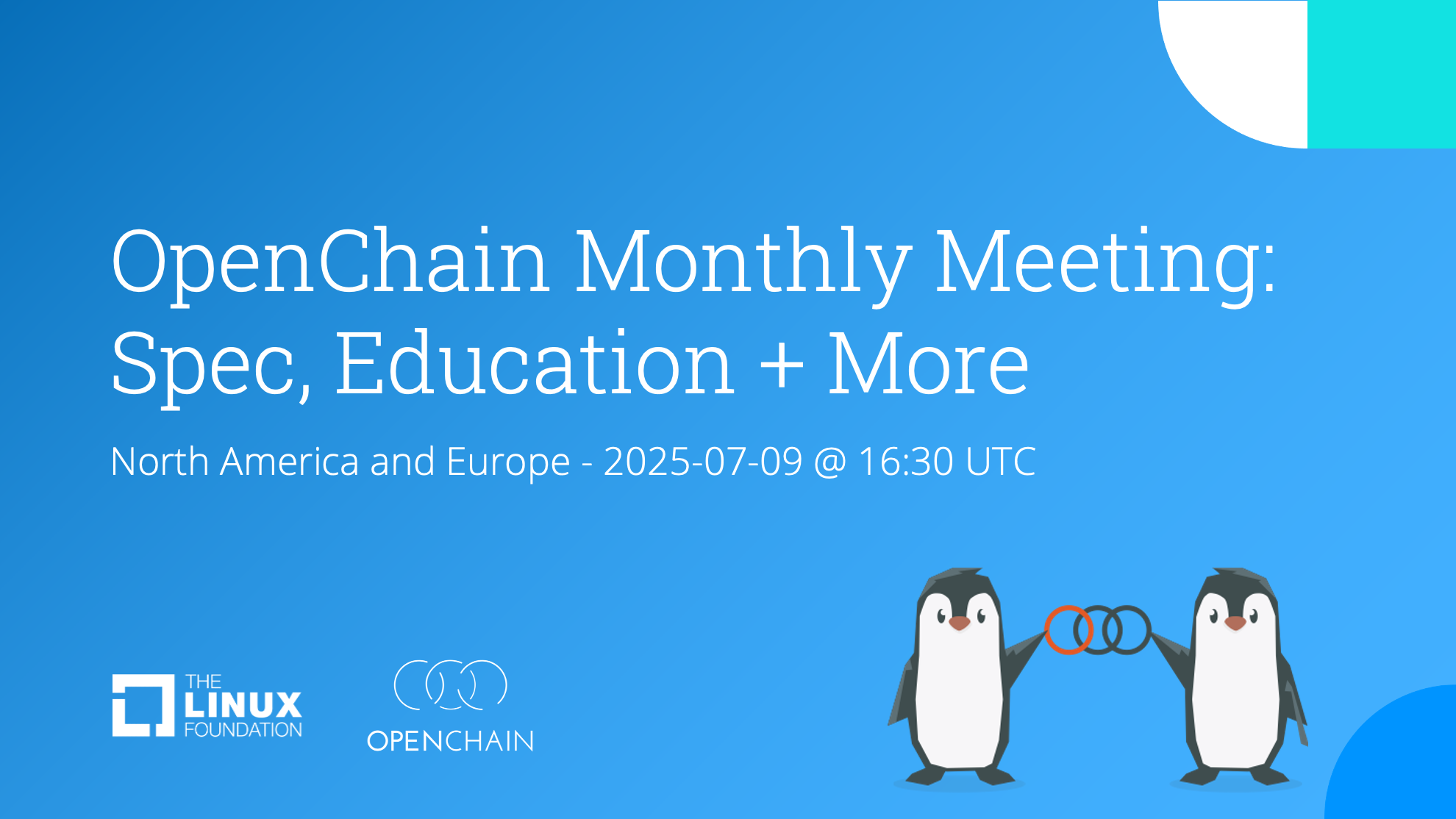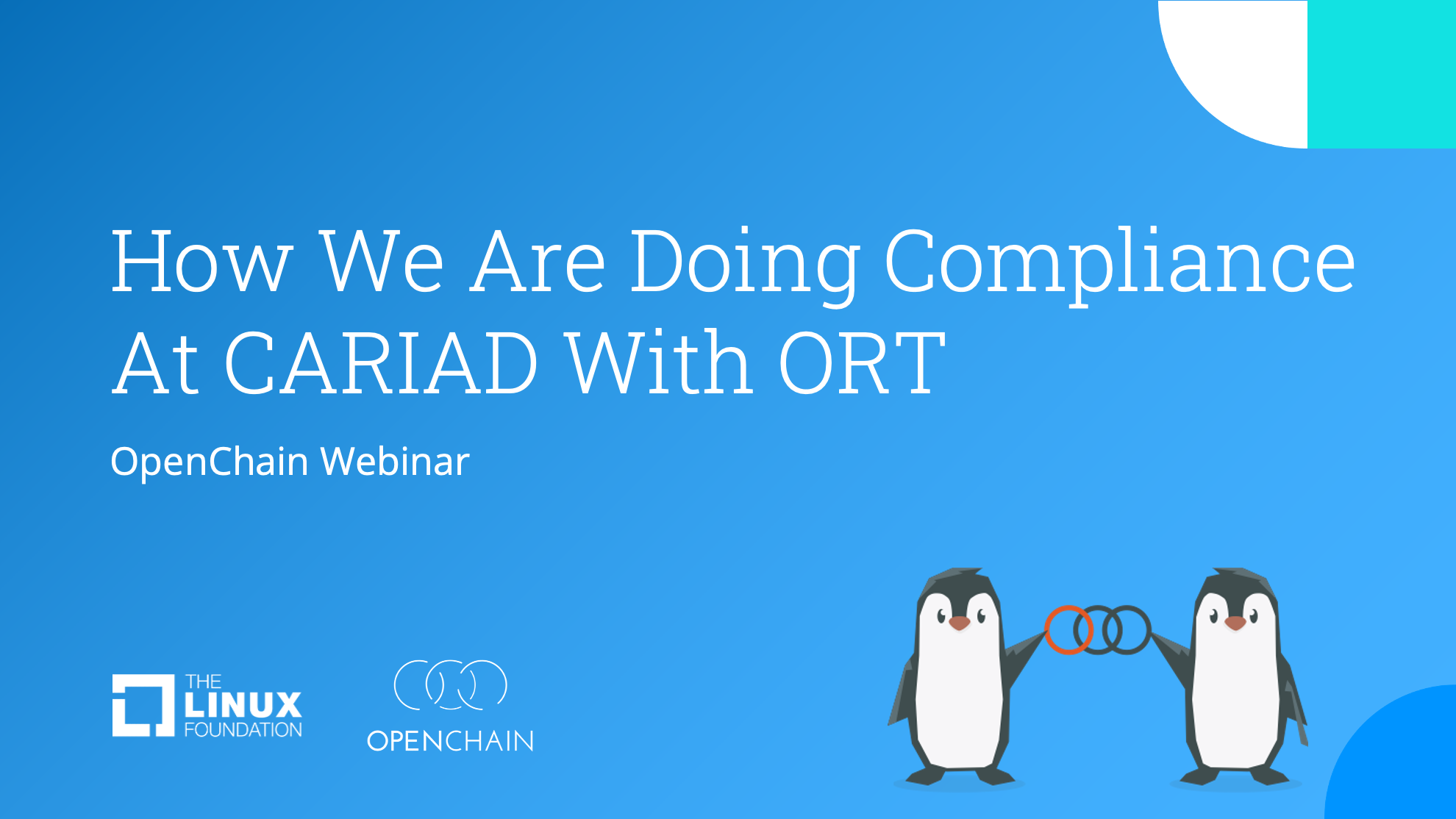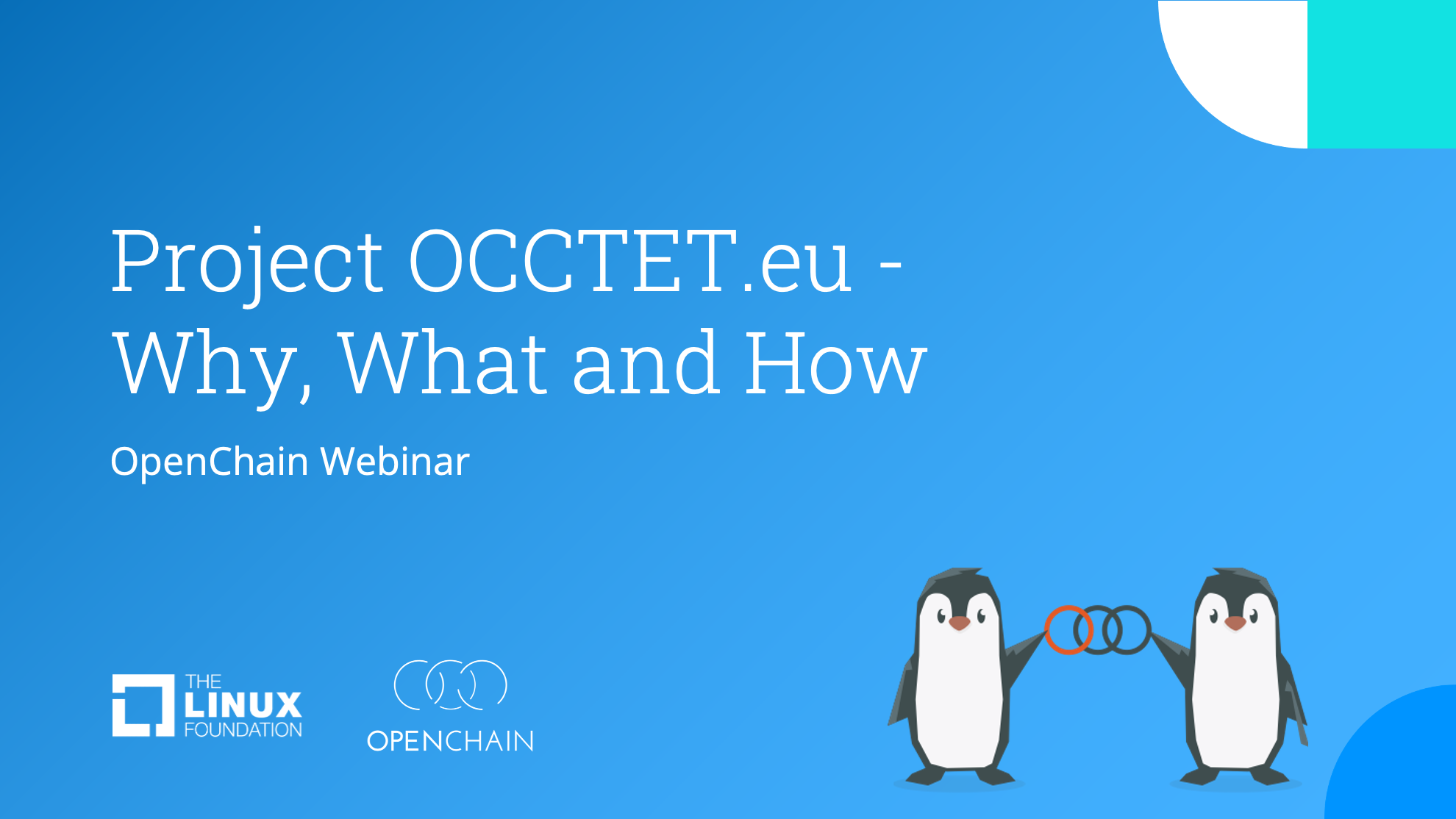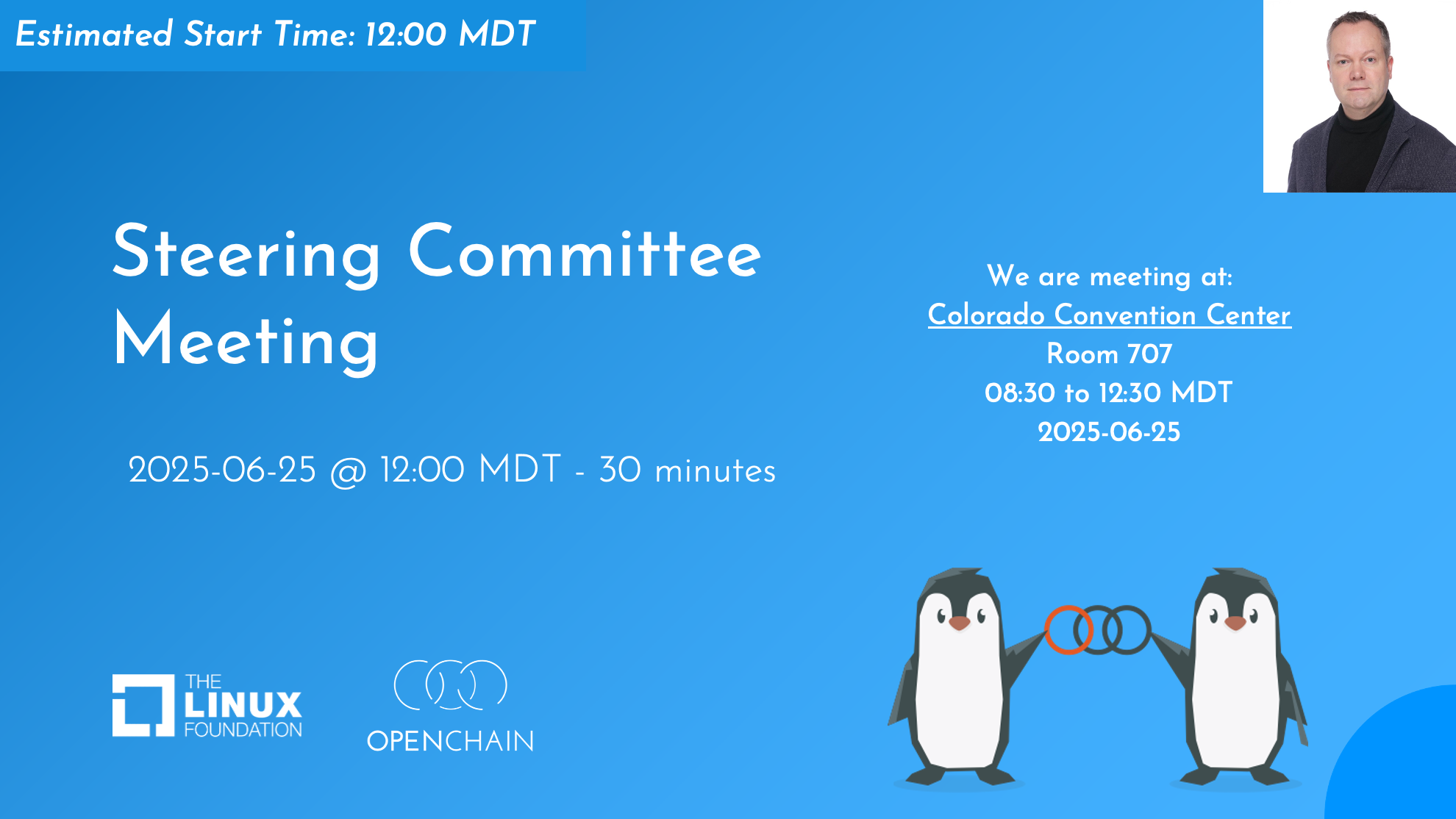
We Discussed:
This was a busy meeting. Lead by Chris Wood (Chair, Specification Work Group), and featuring discussions from Martin Yagi (Chair Education Work Group) and Dave Marr (Co-Chair AI Work Group), we worked through the following agenda:
- Introducing new Work Group Chairs
- Education Work Group next steps
- AI Work Group – Draft AI Compliance Guide public comment period
- Specification Work Group – Approvals for updates to standards
- and more
Watch the Recording:
Check out the Meeting Slides:
Coming Next:
- With concrete targets for implementing agreed updates to the existing standards;
- A new outreach beginning to triage further updates to the existing standards;
- A provisional roadmap for further developing our education material;
- And a six week window before finalizing a new AI compliance guide;
We have full but focused activity ahead.
Join Our Work:
Everyone is welcome to be part of the Specification Work Group. You can join their mailing list here:
https://lists.openchainproject.org/g/specification/
You can find and be part of all OpenChain calls through our participation page here:
https://openchainproject.org/participate





